Related Research Articles

Miljenko Jergović is a prominent Bosnian writer.
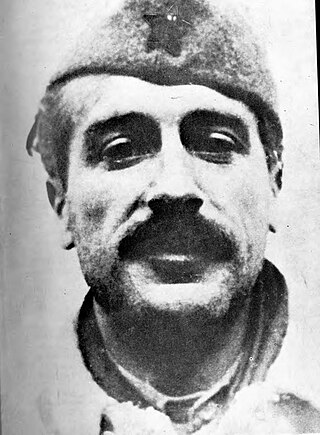
Skender Kulenović was a Bosnian poet, novelist and dramatist.

Igor Štiks is a Bosnian and Croatian novelist and political philosopher. As an academic, Štiks works as a research associate at the University of Edinburgh. His novels The Judgment of Richard Richter and A Castle in Romagna have earned him multiple awards; the former has been translated into 15 languages.
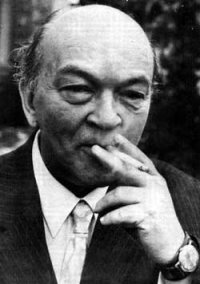
Enver Čolaković was a Bosnian novelist, poet and translator, best known for his 1944 novel The Legend of Ali-Pasha. During the later stages of World War II he served as a cultural attaché to the Independent State of Croatia embassy in Budapest. After the war he spent the rest of his life in Zagreb, where he published a number of literary translations from Hungarian and German.
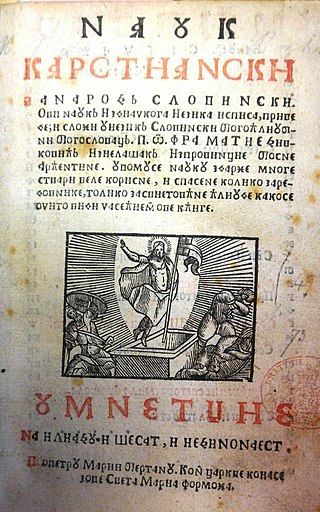
Literature of Bosnia and Herzegovina is a complex literary production within Bosnia and Herzegovina, which is seen as a unique, singular literature of Bosnia and Herzegovina, consisting of literary traditions of the people of Bosnia and Herzegovina.
Depending on the period in history, it is written in Serbo-Croatian, Bosnian, Croatian, and Serbian languages, and uses both Latin and Cyrillic scripts, and historically, it used Ladino, Arabic, Persian and Ottoman-Turkish, with a use of peculiar form known as Aljamiado and Arebica. Hence, literature of Bosnia and Herzegovina was realized within the framework of multicultural-civilizational paradigm. It is closely related to other South Slavic literature.

Adil Zulfikarpašić was a Bosnian intellectual and politician who served as vice president of the Republic of Bosnia and Herzegovina, during the Bosnian War of the 1990s, under the first president of the Presidency of the Republic of Bosnia and Herzegovina Alija Izetbegović. After the war he retired from politics and opened the Bosniak Institute, a museum in Sarajevo focused on the Bosniak culture.
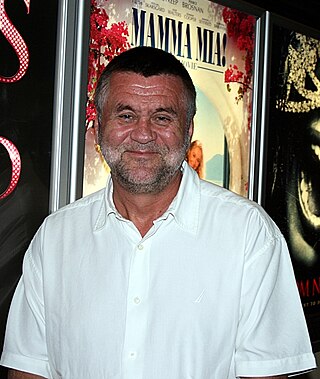
Rajko Grlić is a Croatian film director, producer and screenwriter. He is a professor of film theory at Ohio University and artistic director of the Motovun Film Festival in Motovun, Croatia.
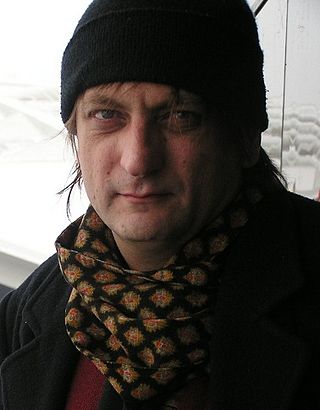
Sasha Skenderija is a Bosnian-American poet currently residing in Prague.
Oto Horvat is a Serbian poet and writer. He lives and works in Florence, Italy.
Željko Ivanković is a Yugoslavian and Bosnian poet, novelist, short story writer, essayist, translator.
Faruk Šehić is a Bosnian poet, novelist and short story writer.
Veselin Gatalo is a writer and poet from Bosnia and Herzegovina.

Ivana Bodrožić is a Croatian writer and poet.
Lejla Kalamujić is a queer writer from Bosnia and Herzegovina. She writes prose, essays and reviews with central topics of sexuality, madness, and death. Her Call me Esteban short stories collection received the “Edo Budisa” literary award of Istria region in 2016 and it was the Bosnian-Herzegovinian nominee for the European Union Prize for Literature in the same year.

Dubravko Lovrenović was Bosnian and Herzegovinian medievalist, author and essayist, who worked at the Faculty of Philosophy of the University of Sarajevo, Department of History, in Sarajevo, Bosnia and Herzegovina.
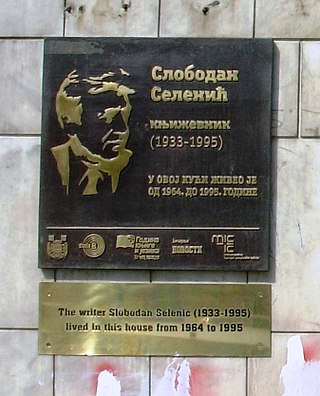
Slobodan Selenić was a Serbian writer, literary critic, dramatist, academic and university professor of 20th century literature. He graduated from the Faculty of Philosophy, University of Belgrade.

The Faculty of Humanities is the oldest and one of the most prominent faculties of the University of Sarajevo in Bosnia and Herzegovina. The institution was established on 14 February 1950 by the decision of the People's Republic of Bosnia and Herzegovina.
Željko Karaula is a Croatian historian and author. His scientific focus is on modern Croatian and Yugoslavian history, particularly the history of his hometown and the surrounding area. He promotes the development of Croatian-Montenegrin scientific-cultural values.

Ivan Lovrenović is a Bosnian and Herzegovinian publicist, writer, historian, essayist, and editor.
Ivo Lučić, is Bosnian and Herzegovinian journalist and karstologist. He is prominent writer and a scientific journalist, ecology activist, interested in a research and protection of nature, especially Bosnia and Herzegovina part of the Dinaric karst, and its hydrology and geology. He is one of the co-founding members of the Centar za krš i speleologiju of the Academy of Sciences and Arts of Bosnia and Herzegovina (ANUBiH).
References
- ↑ "Enver Kazaz". Fondacija Mak Dizdar.
- ↑ "Prof. Dr. Enver Kazaz". University of Sarajevo.
- ↑ "Nova pripovjedačka Bosna". Sveske.ba.
- ↑ "Enver Kazaz: Bošnjački bosanski jezik". Prometej.ba.
- ↑ "Bošnjački roman XX vijeka". Knjiga.ba.
- ↑ "Enver Kazaz biografija". Penbih.ba.
- ↑ "Enver Kazaz biografija". Penbih.ba.
- ↑ "Uskoro počinje šesti Otvoreni univerzitet Sarajevo pod nazviom "Šta da se radi?"". Radio Sarajevo.
- ↑ "Enver Kazaz: Dinastija Izetbegović u 2018. bi mogla otići s povijesne scene". Dnevni avaz.
- ↑ "Enver Kazaz: Socijaldemokratija se vraća svojim osnovama i ljevica će biti ta koja će izvući zemlju iz kriza". Prometej.ba.
- ↑ "Enver Kazaz: Izazovi nove ljevice". Okruzenje.net.
- ↑ Derk, Denis (28 March 2017). "Donosi se Deklaracija o zajedničkom jeziku Hrvata, Srba, Bošnjaka i Crnogoraca" [A Declaration on the Common Language of Croats, Serbs, Bosniaks and Montenegrins is About to Appear]. Večernji List (in Serbo-Croatian). Zagreb: Večernji list. pp. 6–7. ISSN 0350-5006. Archived from the original on 20 September 2017. Retrieved 5 June 2019.